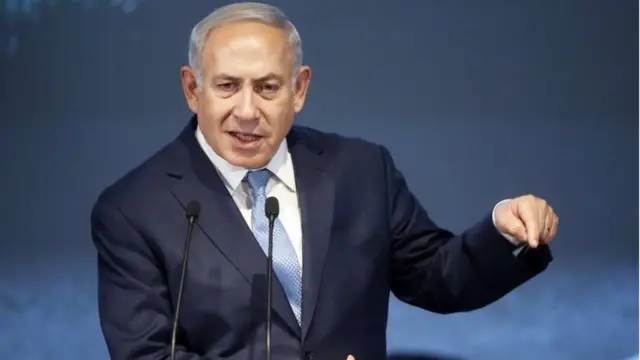Netanyahu Reaffirms Israel’s Resolve to Prevent Iranian Nuclear Armament Amid Renewed US-Iran Talks
By Kardo Roj
MOSCOW, Russia (North Press) – Israeli Prime Minister Benjamin Netanyahu reiterated on Thursday that Israel will not allow Iran to acquire nuclear weapons, issuing a direct warning to Tehran as diplomatic efforts between the United States and Iran gain momentum in Europe.
In a statement from his office, Netanyahu said, “As the Prime Minister has stated repeatedly, Israel will not permit Iran to possess nuclear arms.” He credited Israeli covert and overt operations over the past decade with significantly delaying Iran’s nuclear development.
The remarks came on the heels of a report by The New York Times revealing that former U.S. President Donald Trump had previously blocked an Israeli plan to strike Iranian nuclear facilities. The disclosure adds weight to Netanyahu’s ongoing narrative of Israeli restraint under pressure and the limitations imposed by shifting U.S. policy.
Netanyahu’s renewed rhetoric coincides with a high-level diplomatic push by Washington to revive nuclear negotiations with Tehran. U.S. Special Envoy Steve Witkoff is scheduled to meet with Iranian Foreign Minister Abbas Araghchi in Rome on Saturday, following a week of indirect talks that marked the most senior U.S.-Iran engagement since the collapse of the 2015 nuclear accord.
The planned meeting is expected to focus on reestablishing a framework that limits Iran’s nuclear enrichment program in exchange for gradual sanctions relief—an approach criticized by Israel, which remains skeptical of Iran’s intentions and compliance.
“The Prime Minister has led numerous public and clandestine operations against the Iranian nuclear program,” the Israeli statement added. “Without these, Iran would already have a nuclear arsenal. These operations have delayed Iran’s program by nearly a decade.”
Tensions over Iran’s nuclear ambitions have long reverberated throughout the Middle East, including in Syria, where Israeli airstrikes have targeted what Israel claims are Iranian-backed military positions. While Tel Aviv maintains that these operations are preemptive security measures, they often raise concerns about broader regional escalation, particularly in areas with complex military and political balances.
In northeast Syria, where the Autonomous Administration (AANES) continues efforts to maintain regional stability in partnership with the Syrian Democratic Forces (SDF), the prospect of escalating regional conflict remains a pressing concern. The region has already witnessed periodic flare-ups and must navigate the risk of being entangled in wider geopolitical confrontations.

